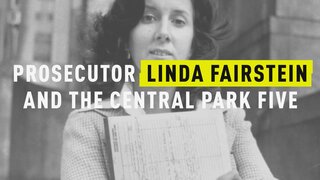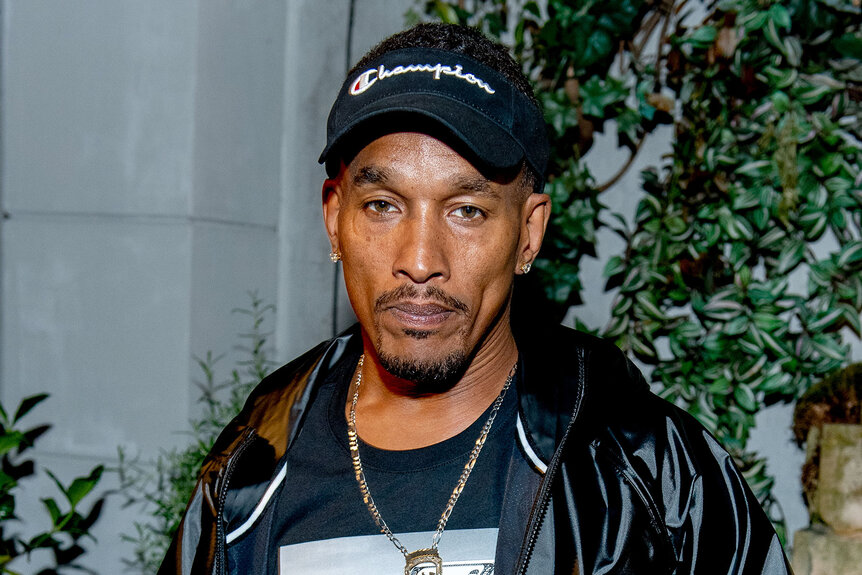Create a free profile to get unlimited access to exclusive videos, breaking news, sweepstakes, and more!
'I Wanted To Go Home': Korey Wise's Heartbreaking Testimony In The 'Central Park 5' Case
“I wish to God I had just hung the jury on that and that’s been my biggest regret for 30 years,” Juror Victoria Breyer has said about her vote to convict despite having doubts about Wise's videotaped confession.

The "Central Park Five" case was one of the most publicized of the 1980s: five teens were falsely accused and convicted of raping a woman in Central Park and it would take years before they were exonerated. But one of the five had an especially difficult journey and gave heartbreaking emotional testimony during one of the two trials in the case.
As Ava DuVernay's new four-part Netflix film "When They See Us" shows, Raymond Santana, 14, Kevin Richardson, 14, Antron McCray, 15, Yusef Salaam, 15, and Kharey Wise, 16, were convicted of the rape of Trisha Meili, an investment banker who was attacked in Central Park in April 1989. The boys were sentenced to between seven and nearly 14 years in prison for the attack before being cleared in 2002 after the actual rapist confessed.
Wise was the only one who was still imprisoned in 2002 when the five were exonerated. After he was released he changed his first name from Kharey to Korey.
As depicted in the series, he only went down to the precinct to support his friend Salaam who was being questioned by police in connection with the rape. Police had rounded up several teens of color believed to have been in the park harassing people and figured they were prime suspects for the rape. Wise himself ended up being questioned too and because he was 16, he was targeted more severely. He could be interrogated without a guardian and because of his age he was able to be charged as an adult. He may have also been particularly vulnerable, despite being the oldest.In her 2011 book, "The Central Park Five: The Untold Story Behind One Of New York City's Most Infamous Crimes," Sarah Burns writes that Wise had hearing problems from an early age and a learning disability that limited his achievement in school.
Burns, whose dad worked at a lawyer’s office who represented the five in a lawsuit, referred to him as "the least developed emotionally and intellectually of the boys.”
Wise took the stand during the second trial in the case, the one for both him and Richardson. Burns wrote that while that was a risk, it could also be a huge benefit, stating that "if Korey could express how overwhelmed he'd felt, he might make an impression on the jury that he'd been coerced."
While on the stand, Wise, who Burns described as "childlike," said he couldn't read or write very well and that he also had difficulty hearing. During cross examination, lead prosecutor Elizabeth Lederer asked him to read something and he couldn't. Then, according to Burns’ book, she put records in front of him to prove that he hadn't been going to school.
"What does this have to do with my case? ... Come on, man. I'm tired of hearing this,” he said, getting upset and standing up. The prosecution asked him to sit down and answer the questions about his truancy but he didn’t. The jury was sent out of the room but not before Wise explained that he was the victim of bullying.
"I was 12 years old back then. What does this have to do with Central Park?” he testified with emotion as the jurors were filing out, according to the book. “The reason why I wasn't in school because I was threatened not to go back to school. People putting guns to my head, that's why."
During his time on the stand, Wise tried desperately to explain that he was coerced into confessing and he maintained he went to the park but said he left soon after without participating in any violence.
"He explained that he'd then gone over to his girlfriend Lisa's place for most of the rest of the evening," Burns wrote.
The only violent exchanges he experienced that night came at the hands of police, he said.
"He described being taken to the police precinct, and he accused Detective Nugent of slapping him and swearing at him, and telling him that he could go home if he lied and said he'd been there [at the scene of the rape],” Burns wrote.
A videotaped confession, which was shown at the trail, shows a very confused Wise changing his story until he finally “confesses” to raping the victim. He was interrogated for hours until he provided multiple statements and two videotaped confessions, all of which wildly conflicted with each other and weren't consistent with the nature of the victim’s injuries. In one of his videotaped confessions, he even claimed Meili was stabbed with a knife. In actuality, she was struck by a rock after initially being hit with a tree branch. In that tape confession, he also said he changed his statement after a "detective came in my face, arguing with me, cursing at me, hitting on me."
“I wanted to go home,” he testified at his trial. When pressed by Lederer if police made him confess he repeated, "I tell you, I wanted to go home."
A juror on that trial, Victoria Breyer told ABC’s “20/20” it was difficult to reconcile Wise's confession with the facts of the case.
“I didn’t believe that he had anything to do with the rape,” she said. “Korey Wise’s confession didn’t make any sense compared to anything else. It just didn’t line up.”
Yet she said she felt pushed to find him guilty.
“I wish to God I had just hung the jury on that and that’s been my biggest regret for 30 years.”
Not only did Wise serve the most time behind bars, he did so in adult prisons, including at the much-feared Rikers Island. “When They See Us” depicts some of the pain that he went through behind bars.
"One of the things that really struck me was when Korey said to me, ‘There is no Central Park Five. It was four plus one. And no one has told that story,’” DuVernay told Town & Country. "I think it’s important for people to understand the depths of what it means to be incarcerated in adult prisons in this country.”
While imprisoned, Wise met the real rapist, Matias Reyes, who eventually admitted to the crime. DNA evidence backed up that confession. The exoneration of all five came soon after, followed by a $41 million settlement reached with New York City.
After he was released, Wise both established and funded the Korey Wise Innocence Project at Colorado Law School which offers pro-bono legal counsel to wrongfully convicted people like himself.























